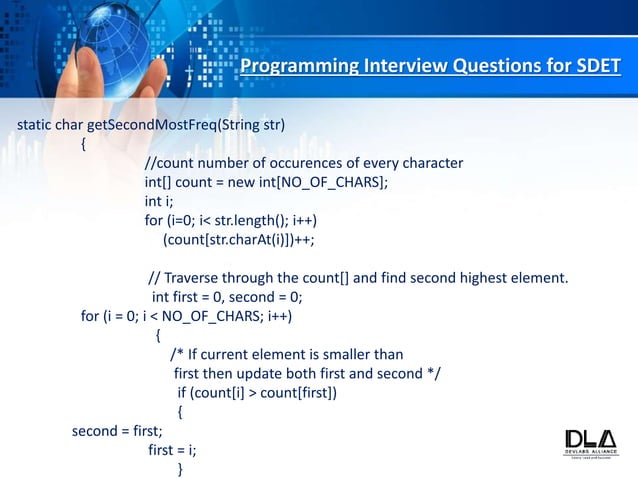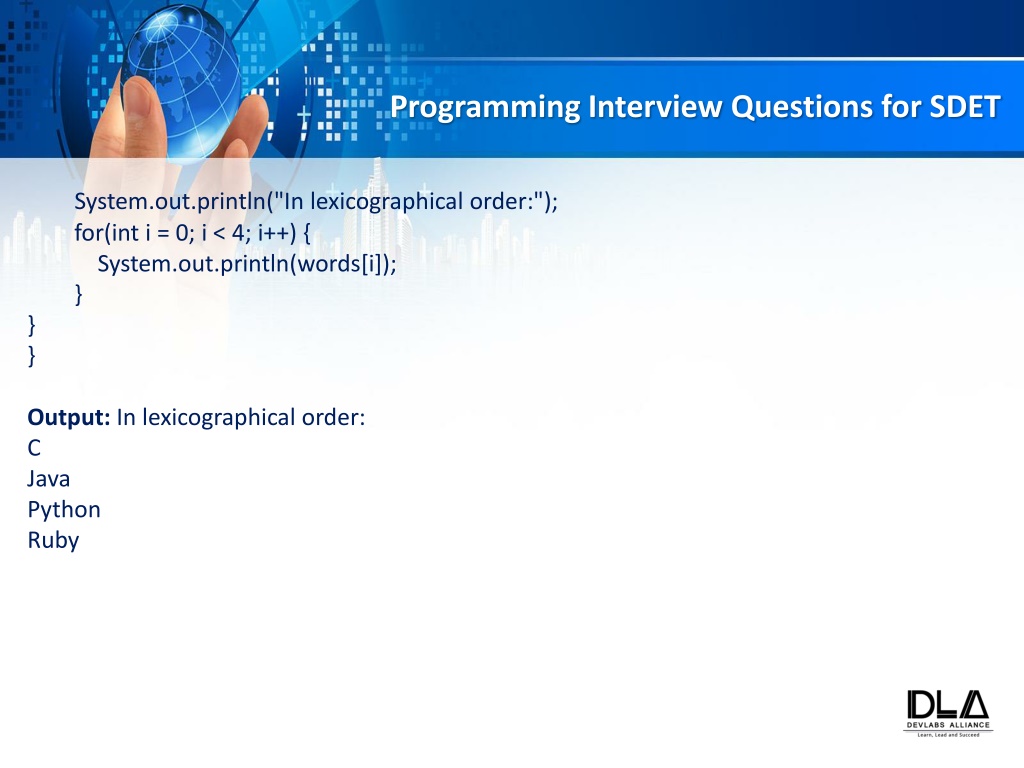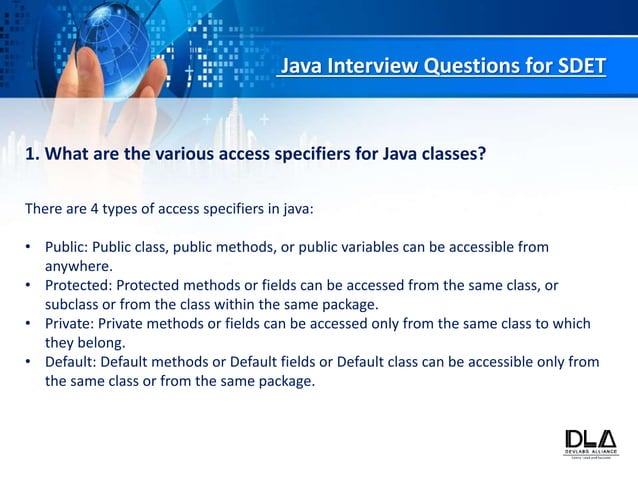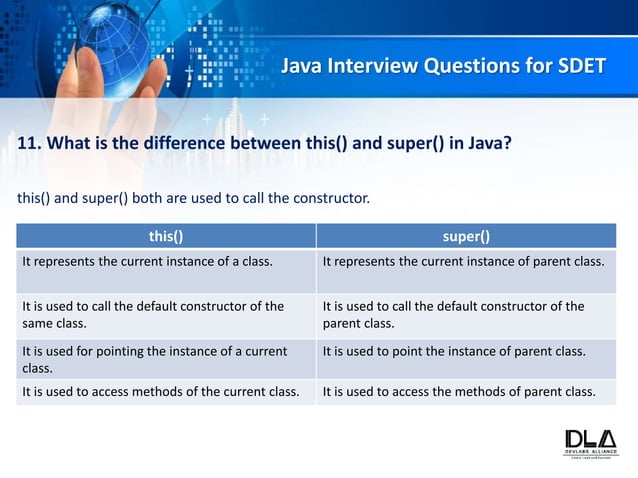Java Coding Interview Questions For Sdet

Imagine the scene: a quiet room, the gentle hum of a keyboard, and a candidate poised on the edge of their seat. The air crackles with anticipation as the interviewer leans forward, a subtle smile playing on their lips. The question hangs in the air, seemingly simple, yet laden with the weight of career aspirations: "How would you reverse a string in Java?" This isn't just about coding; it's about problem-solving, critical thinking, and demonstrating a deep understanding of fundamental concepts.
This article delves into the world of Java coding interview questions specifically tailored for Software Development Engineer in Test (SDET) roles. We will navigate the crucial concepts and provide insights into the type of questions asked and how to ace the interview.
Why Java for SDETs?
Java's widespread adoption in enterprise environments makes it a staple skill for SDETs. Its platform independence, robust libraries, and strong community support make it ideal for building and maintaining test automation frameworks. Proficiency in Java allows SDETs to create efficient and reliable tests.
Therefore, you can evaluate the quality of software and identify potential issues before they reach the end-users. Mastery of Java is a core skill for SDETs in today's tech market.
Common Java Interview Topics for SDETs
Interviews for SDET positions often cover a broad spectrum of topics, testing not only coding skills but also understanding of software testing principles. Below is what they usually ask.
Data Structures and Algorithms
Expect questions on arrays, linked lists, stacks, queues, and trees. Interviewers may also test your knowledge of sorting and searching algorithms. Understanding time and space complexity is crucial.
It shows your problem-solving skill by analyzing the efficiency of different approaches to solve a problem.
Object-Oriented Programming (OOP)
Java is an object-oriented language, so a solid understanding of OOP principles is a must. Encapsulation, inheritance, and polymorphism are the pillars of OOP. Also, you should be ready to explain their benefits and implementation.
Furthermore, you should be ready to design classes and methods that follow best practices.
String Manipulation
String manipulation is a common task in test automation. Therefore, be ready to answer questions on string operations like reversing, finding substrings, and comparing strings. Consider different approaches and their performance implications.
Exception Handling
Knowing how to handle exceptions gracefully is important for writing robust code. You should know the best practices and different types of exceptions. Furthermore, you must be able to implement `try-catch` blocks effectively.
Collections Framework
The Java Collections Framework provides a set of interfaces and classes for storing and manipulating data. Be familiar with List, Set, and Map interfaces. Know the differences between various implementations like ArrayList and LinkedList.
Multithreading and Concurrency
Multithreading allows running multiple threads concurrently. This topic is vital for writing high-performance test automation suites. You must know how to create and manage threads. In addition, you should be aware of potential issues like race conditions and deadlocks.
Testing Frameworks
Beyond pure Java, SDET interviews assess your familiarity with testing frameworks. JUnit and TestNG are widely used. You should know how to write test cases, use annotations, and organize tests.
Knowledge of mocking frameworks like Mockito is also valuable. It allows you to isolate units of code for testing.
Design Patterns
Familiarity with design patterns like Singleton, Factory, and Observer can be beneficial. These patterns can help you write clean, maintainable, and scalable test code. Understanding common patterns can improve your code design skills.
Example Question: Palindrome Check
One example is "Write a Java method to check if a given string is a palindrome." This tests not just coding ability, but also the understanding of edge cases (null or empty strings). It also shows ability to explain the logic clearly.
Tips for Success
First, practice consistently with online coding platforms. Also, focus on understanding the underlying concepts rather than just memorizing solutions.
Second, communicate your thought process clearly during the interview. Explain your approach, assumptions, and trade-offs.
Finally, be prepared to discuss your previous experiences with test automation. You should highlight your contributions and lessons learned.
The journey to becoming a successful SDET is paved with continuous learning and practice. By mastering Java and understanding its application in testing, candidates can confidently navigate the interview process. They will ultimately excel in their roles.
So, embrace the challenge, sharpen your skills, and remember that every interview is a learning opportunity. With dedication and preparation, the world of software testing awaits.


















